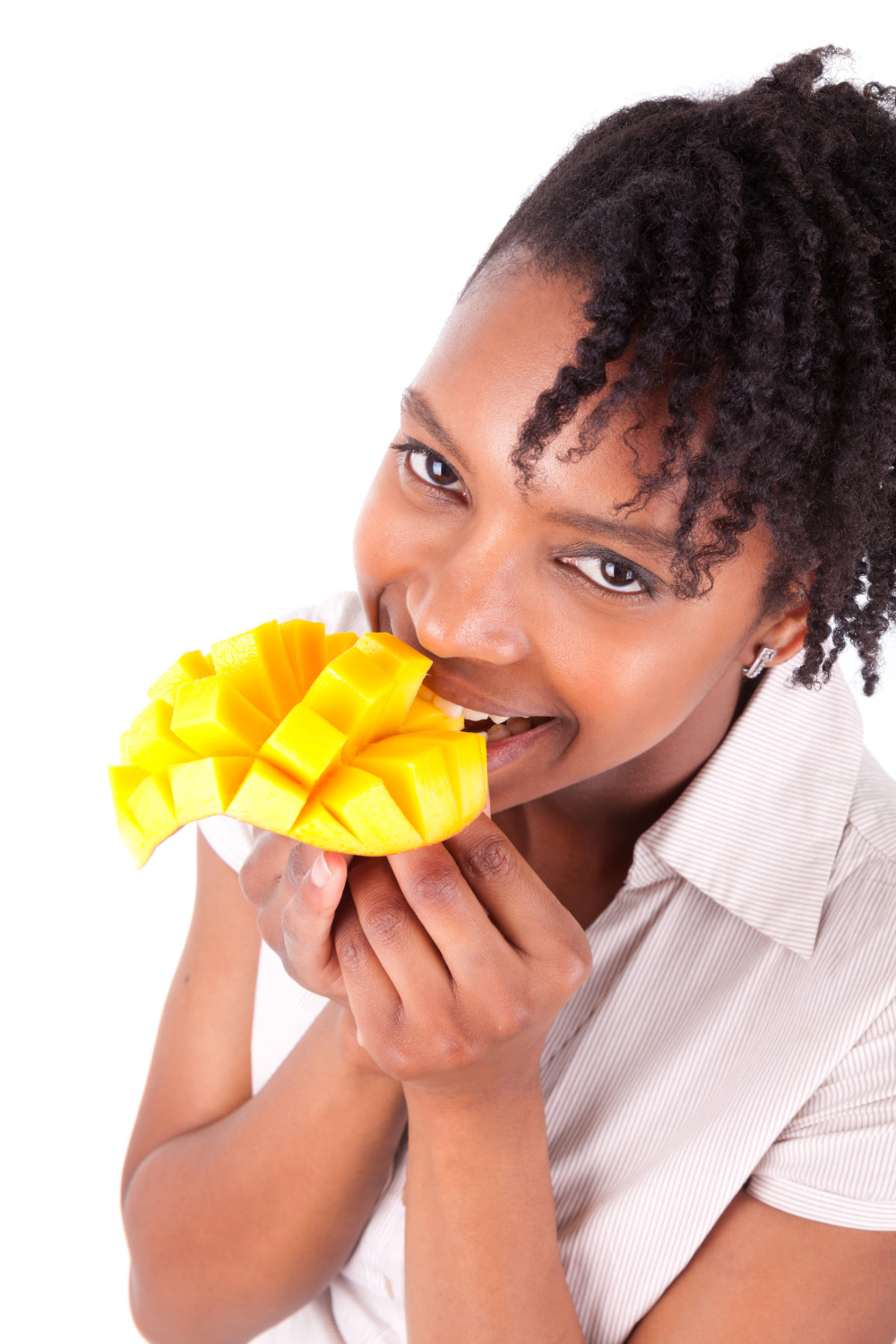 Orange, cashew, moringa, turmeric, pepper, bitter leaf, waterleaf, saint leaf, tomato and pawpaw are the fruits and vegetables currently planted in our house. Growing up, my mum took pleasure in planting various fruits and vegetables around the house and I could not comprehend why. I came across the news about the use of calcium carbide as a ripening agent and it made sense.
Orange, cashew, moringa, turmeric, pepper, bitter leaf, waterleaf, saint leaf, tomato and pawpaw are the fruits and vegetables currently planted in our house. Growing up, my mum took pleasure in planting various fruits and vegetables around the house and I could not comprehend why. I came across the news about the use of calcium carbide as a ripening agent and it made sense.
During the days of our grandparents, fruits and vegetables were grow organically on farmlands and eaten fresh. Now, we have produce that are harvested prematurely and injected to hasten ripening or prolong shelf-life. A few of these fruits and vegetables are: mango, banana, cashew, orange and plantain. This ripening process, used by farmers, are sometimes intended for good, such as:
- To increase shelf-life.
- Prevent rot.
- Enhance the outlook of the fruit/vegetable.
What the farmers fail to understand is these fruits and vegetables ought to be fresh and organic. There is no need to enhance the outlook as it will be consumed no matter how dull the appearance is, provided it is organic.
Mohammed Asif (2012) defined ripening as “final stage of the maturation process, when the fruit changes colour, softens and develops the flavour, texture and aroma that constitutes optimum eating quality,” Fruit ripening is defined as “the highly coordinated, genetically programmed and an irreversible phenomenon involving a series of physiological, biochemical and organoleptic changes that finally lead to the development of a soft edible fruit with desirable quality.”
There are different ripening agents used by farmers such as:
- Acetylene
- Calcium Carbide
- Ethylene
- Propylene
- Ethanol
According to Ashraf et. al. (2008), for so many years Ethylene was the main fruit ripening agent used by farmers, but Calcium Carbide (CaC2) is now used because it produces results faster. Ethylene is a plant hormone that triggers fruit ripening. Acetylene and Calcium Carbide. CaC2 changes the skin colour of the fruits and initiates the enzymatic action that breaks down the glucose. Fruits ripened with Calcium Carbide are soft and have good colour but are poor in taste. When using Acetylene gas to ripen fruits sometimes only the skin colour changes; the fruit remains unripe. Of all the ripening agents mentioned above, Calcium Carbide is widely used because it is cheaper and available in local markets, even though it is known to have carcinogenic properties.
How CaC2 works?
When Calcium Carbide is used for the fruit and it comes in contact with moisture in the atmosphere, it produces a gas called Acetylene, which hastens the ripening process. CaC2 is a material commonly used for welding purposes and should not be used as a ripening agent.
When Calcium Carbide is used for the fruit and it comes in contact with moisture in the atmosphere, it produces a gas called Acetylene, which hastens the ripening process. CaC2 is a material commonly used for welding purposes and should not be used as a ripening agent.
Health Hazards associated with fruit ripening agent
May contain traces of Phosphorus Hydride and Arsenic which can lead to:
- Vomiting
- Diarrhea
- Burning Sensation of the chest and abdomen
- Thirst
- Weakness
- Difficulty in swallowing and speech
- Low blood pressure
Affectsthe neurological system, resulting in:
- Dizziness
- Headache
- Mood disturbance
- Mental Confusion
- Sleepiness
- Seizures
- Memory loss
Can cause miscarriages or developmental abnormalities in children when a pregnant woman consumes artificially ripened fruits.
Calcium Carbide can cause digestive, respiratory and gastrointestinal tract burns.
Recommendations
Government, law enforcement agencies, Federal Ministry of Agriculture and Rural Development, and health authorities should work together to ensure ripening agents that are carcinogenic are banned in Nigeria. They should:
Government, law enforcement agencies, Federal Ministry of Agriculture and Rural Development, and health authorities should work together to ensure ripening agents that are carcinogenic are banned in Nigeria. They should:
- Develop new and improved techniques of application.
- Devise better alternatives.
- Provide awareness on the implications of unsafe fruit ripening agents.
How to spot and avoid artificially ripened fruits
- A lack in uniform colour can imply fruit was artificially ripened. Do not consume to be safe.
- If the fruit appears ripe but tastes unripe (not sweet or excessively sour), do not consume.
- It is believed that if the fruit floats when immersed in water, then it was harvested prematurely (not scientifically proven).
- Wash fruits thoroughly before consuming to ensure any leftover chemical on the body goes away.
- Purchase fruits and vegetables only from known vendors and reputed stores or dealers who know for sure that the fruits are not ripened by using harmful or banned chemicals
- Avoid eating fruits with black blotches on the skin as these fruits are likely ripened by acetylene gas produced from calcium carbide.
Growing your fruits and vegetables at home is never a bad idea especially if you have the means to.
Photo Credit: Dreamstime
Thanks For Reading and Visiting There is more to read look around

